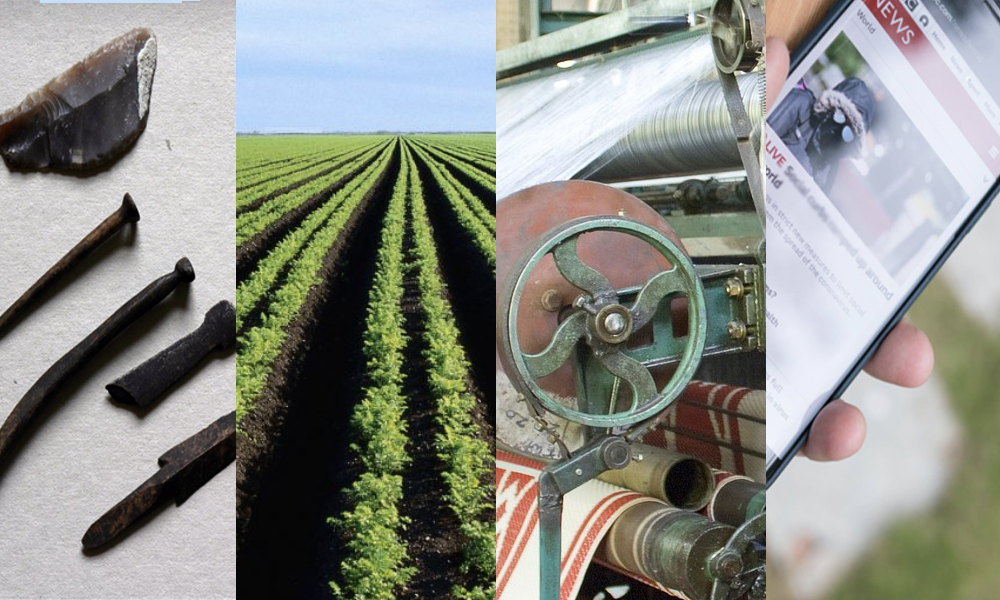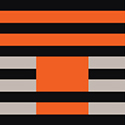
by Carol S. Hyman
As we look for a cure for what ails us, it’s worth remembering that solutions don’t always arrive when and where we expect. The familiar story of the accidental discovery of penicillin rarely includes the fact that it would take ten years of collaborative efforts for the first life to be saved by antibiotics.
And what if Alexander Fleming had returned from vacation in 1928 to find moldy petri dishes in his lab and, instead of paying enough attention to notice that bacteria wasn’t growing in proximity to the mold, he had jumped to the conclusion that his experiment was ruined and tossed the whole lot? History might be quite different.
So in this summer of our discontent, as we question what winter might bring, what might we do to make times to come more glorious? Living through time our descendants will probably call historic, we don’t know what’s coming. After all, the first people to plant a seed and tend it didn’t likely think, “Oh, boy, now we’re kicking off the age of agriculture!”
And later it would have taken real prescience to see in the start of the industrial revolution how radically it would change the world. Marconi, with his bright idea of sending signals through the air, never imagined that just over a century later nearly half the population of the planet would hold in their hands access to more knowledge than the greatest libraries of his time.
But every time humanity takes a big step forward, unintended consequences are hot on our heels. Who could have predicted the ecological consequences of big agriculture, the sacrifice of craftsmanship to mechanization, the proliferation of misinformation enhanced communication would bring? And even with a glimpse of potential downsides, who has the wisdom and power to steer things right?
The answer is that no one person, or small group of people, can do it alone. Collective crises call for concerted resolve. All over the world these days people see changes more drastic than the normal vicissitudes of life. Global interconnectedness means ideas and infections spread easily, demolishing our illusions of control.
Uncertainty has in fact always reigned but these days it’s unmasked. We can’t pretend we know what’s coming next and that makes us afraid. Since we don’t like that feeling, we tend to shut down and tune out into distraction or displace the energy of fear into blame and complaint.
So what will help? Well, with fear and uncertainty in abundant supply and doom and gloom as contagious as any virus, cheerfulness is a valuable commodity, one we can cultivate by realizing our minds are workable. We actually have the ability to enlarge our perspectives and find ways to work with those with whom we disagree. Doing so, we might even recognize that humanity’s interconnectedness, for all its challenges, is also a blessing.
Fixed minds won’t fix our world. They only serve to escalate discord. More pliable attitudes and more tolerance of differences will allow us to harness the power of attention and imagination to help our species adapt to whatever comes next. That will come in handy if worse comes to worst – a thought surely lurking around the edges of our awareness these days.
Meeting this moment calls for strength and stamina, acuity and engagement, flexibility, and freedom from our preconceptions. Add to all that compassion, intelligence, and a willingness to face facts, and it’s just possible we might find the makings of a feast for a famished world.
The value of mindfulness training has been proven but it will take more than mindfulness to bring true benefit. After all, we can be mindful of anxiety and still feel at its mercy. We can be mindful of problems and who we think is at fault, and keep adding to the atmosphere of contention and fear. Applying mindfulness in the service of personal agendas may make us feel better, but it’s unlikely to propagate peace.
Peace on earth starts in the hearts and minds of people; war starts in the same place. History has its eyes on us. Whether it’s his story, her story, tales of terror, or tales of glory, human lives unfold in time and what we do now will shape the tales told by our descendants. Evolution is a slow process. The wave of the future will break on the shores of our intentions.
We need to see ourselves as vehicles determined to deliver into this world provisions that will bring about better lives for ourselves and the generations that follow.
We need to be vehicles to heal the wounds of the past.
“I did then what I knew how to do. Now that I know better, I do better.”
Maya Angelou’s quote is often abbreviated to leave out the first part, but that’s the part that can help pacify the past. Blaming our ancestors, or feeling victimized by history, won’t help us heal. We are all conditioned by our current culture, just as previous generations were. With a bigger perspective, we’ll see how over and over again, throughout history, demonizing others leads to inexpressible suffering. Trying to understand rather than cast blame is the first step toward healing.
We can be vehicles to inspire generosity and humor in the present. Attempting to understand another’s point of view is an act of generosity. Listening with an open mind is a gift to the world. And optimism – even if only long-term – plus the ability to smile at challenging circumstances, and, perhaps most of all, to laugh at ourselves, are treasures beyond price.
Trying to manifest those qualities can make us vehicles helping to deliver peace and plenty to the future. Now that so many of us are wearing masks to avoid spreading contagion, we have to work even harder to spread cheerfulness. The twinkle of eyes suggesting a smile plus a friendly tone of voice, even muffled, can make a difference in these troubled times.
Paying attention, we might, like Fleming with his mold, see how to capitalize on unexpected circumstances. If enough of us apply ourselves to it, we might even create the conditions that allow, as Shakespeare put it so long ago, our stern alarms to change to merry meetings, our dreadful marches to delightful measures. And history might actually smile on us.


